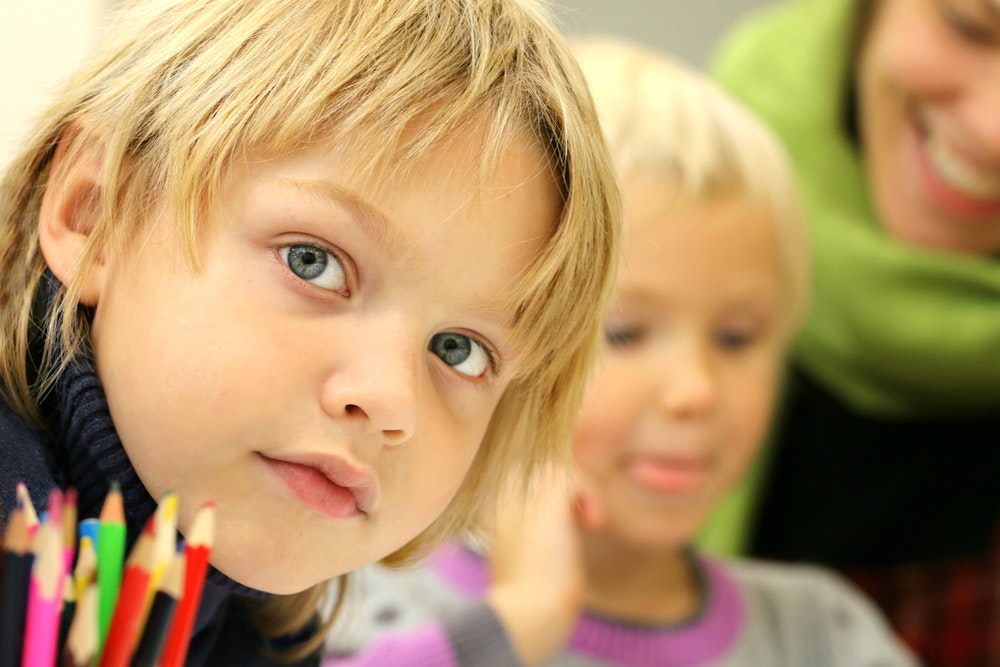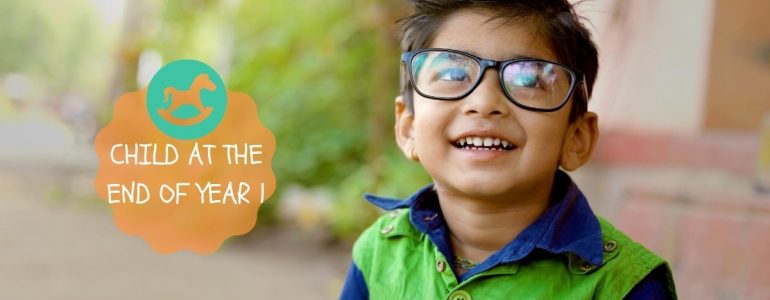Before I go any further, it is very important to remember that all kids are different, and they all develop at their own rates. What one masters early another one may pick up much later, but each will have their own skill sets and ability levels – this guide is in no way meant to make you worry about your child’s development.
Everyone will eventually learn to tie their own shoes, write a letter, and maybe even sit quietly in class and learn something! However, we can set out some rough guidelines as to what a child should know by the end of year one – and if there are any aspects that you can see your child is struggling with, then you will know what areas you can help them in.
What age is year 1?
In the UK, Year 1 is between the ages of 5 and 6. This may vary for summer born children, who may have started school a year later, but generally in year one a child will be between 5 and 6 years of age.
What should a child know by the end of Year 1

This will vary from school to school, and from child to child, so don’t beat yourself up if your child is a little slower, and don’t be too smug if they seem advanced – eventually everyone will catch up!
As a general guide to what should a child know by the end of Year 1, let’s have a little look at the basics of the curriculum for Year 1.
A. Maths
Children will need to be able to count forwards and backward up to 100, and they will start to learn basic addition and subtraction. Here are some toys that can help them.
Times tables will be gradually introduced, with objects included to help them work out what they’re being asked.
Fractions of shapes, such as halves and quarters, will be covered, as will the naming of some 2D and 3D shapes. They will learn to tell the time to the hour and half hour (this may be useful when you’re trying to get them out of the house on time in the morning!)
B. English
Your kids will learn all about the alphabet, with both upper and lower case letters. They should be able to use punctuation effectively up to capital letters and full stops, and other punctuation marks like question marks and exclamation marks will start to be introduced.
Phonics are a big part of learning to read and write, and children will be taught to start to match groups of letters to the sound that they make. They should be able to sequence sentences to make short stories, and may start making up their own original stories too.
C. Science
Learning about the weather is a big part of science at this age, and identifying the seasons and the different weathers that occur. Your little ones will start to learn about different animals, including humans, and will start to understand the differences between them and why they are grouped the way that they are.
Plant identification will also begin, as well as looking into the basic structure of a plant and discovering how it works. Everyday objects with different properties will be introduced, so that children can start to be aware of their different properties.
Continents and countries are also part of the curriculum. Your child should be able to recognise and differentiate between continents and also know some of the countries. You can help them by showing them one of these globes for kids.
D. Other subjects
There is more to life than Maths, Science and English, as we all know!
By the end of Year 1 your child will be enjoying other lessons such as PE – this can be especially great for the physical child who loves sports and needs to run around a lot. They will be shown and encouraged to participate in different sports such as football, gymnastics, hockey and athletics.
Creativity is a massively important part of learning too, and you will find that many children instantly gravitate to this type of lesson more than the academic ones. Painting, drawing and other creative lessons should be encouraged as much as possible, especially for the child who is less physical.
Non-academic achievements
There is a great deal more to Year 1 than just the basic curriculum, however. Your child should also be working on their personal relationships; making friends, helping each other out, playing age appropriate games – and having fun.
Let’s not forget that learning is supposed to be fun! If your child is not enjoying themselves at school for at least the majority of the time, then their learning will suffer.
They should also be able to sit quietly for periods of time, listen to and follow basic instructions, be able to confidently handle their own toilet issues, and ask for help when they need it.
If they struggle with any of these aspects then you as a parent can help them – if you’re stuck for ideas then there is a wealth of knowledge online, or have a chat with your child’s teacher.
Talking to your child is also a big part of helping them achieve, bot academically and socially, so make sure you sit down with them regularly to find out how they are doing.
Final words
The end of Year One is just one more milestone in a life (similar to the start of school that we discussed last time) that will become a whole series of milestones.
You as a parent or guardian can help your child through it by supporting them as much as possible, listening to their problems, advocating for them when they need it, and being sensitive to their individual needs.
School is much more than a conveyor belt, spitting people out at university age – it is a big part of your child’s life, and should be treated carefully to avoid there being any problems later in life.
But don’t worry – your child’s teacher can help support you, and talking to your child regularly will help you understand what’s going on in their lives.









